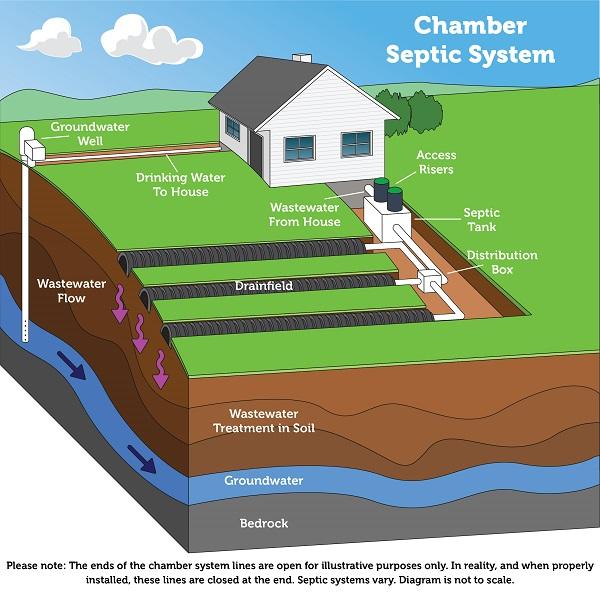Septic Tank Installation Mistakes You'll Want To Avoid
Read More
Schedule Online
919-446-4099

May 30, 2023
Many homes and businesses have septic systems as a necessary component, especially in places without access to a centralized sewer system. These systems are essential for on-site wastewater management and treatment. For septic systems to be properly maintained, including septic tank pumping, septic tank repair, and septic tank installation, it is crucial to understand how they operate.
In this blog post, our professionals from Septic Blue of Raleigh will go into the intricacies of septic systems, providing you with a comprehensive overview.
A septic system is made up of a number of essential parts that operate in unison to treat and dispose of wastewater. The key components are as follows:
Septic tank pumping must be done on a regular basis to avoid backups, obstructions, and system failure. Solid waste builds up inside the tank over time, lowering its actual capacity. Every three to five years, depending on the size of the family and the amount of water used, a septic firm should be employed to pump out the accumulated sludge and scum layer. This preventative measure makes sure the system runs properly and saves money on repairs.
Septic tanks may need to be repaired for a number of reasons, including leaks, broken baffles, or wall fractures. In order to avoid system failure and environmental pollution, it's crucial to address these issues right away. Contact an experienced septic firm to inspect and repair the tank as necessary if you notice unpleasant smells, sluggish drains, or wet areas close to the tank.
Septic system installation calls for thorough planning and adherence to local laws. A septic business with experience in septic tank installation must be consulted. To choose the best tank size and drainfield layout, they will evaluate the property's soil characteristics, water table heights, and expected wastewater volume. Effective wastewater treatment and lifespan are ensured by a septic system that has been installed properly.
The best practices to maintain your septic system are as follows:
Are you having a hard time finding the right septic company? Luckily, we at Septic Blue of Raleigh have dedicated workers ready at your service. Contact our representatives for more questions.l